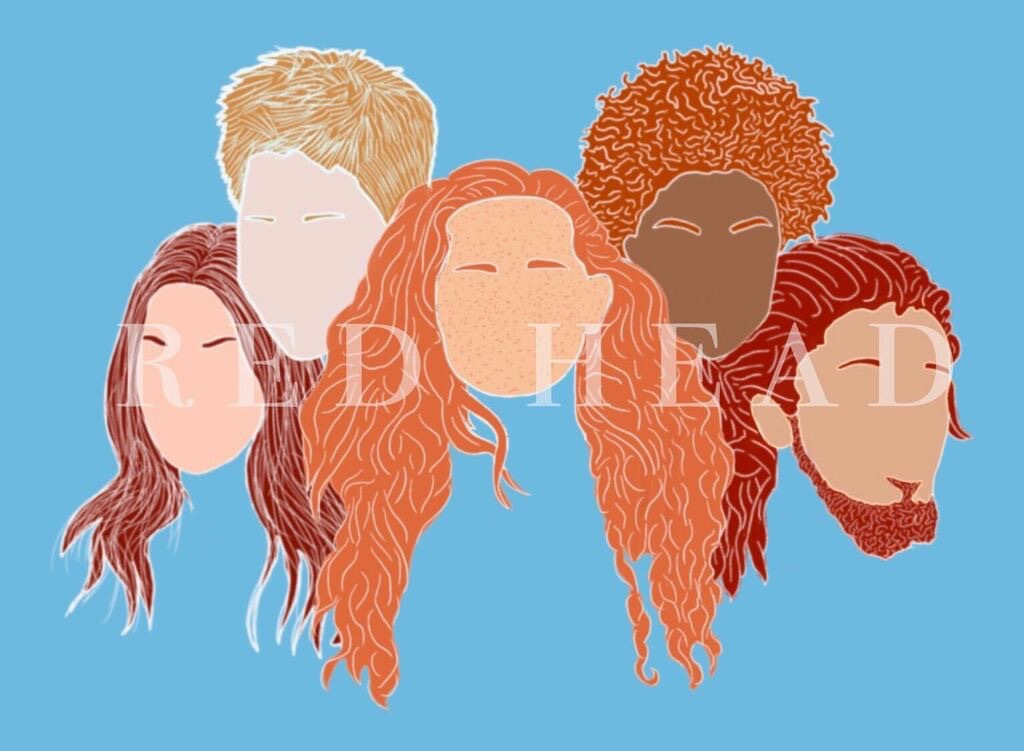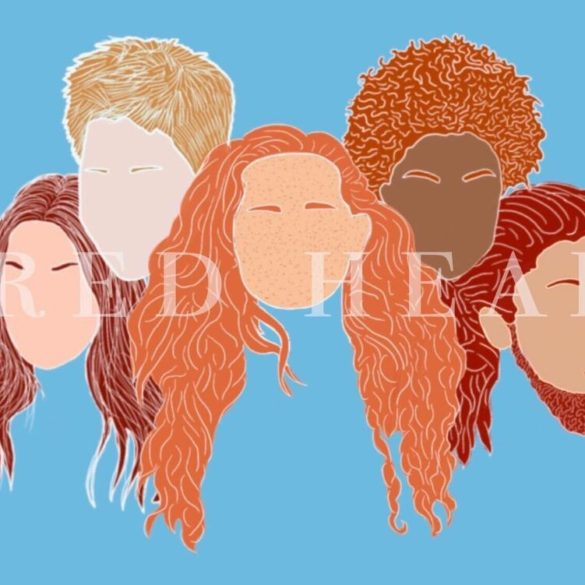The red hair gene may be going extinct, but the people who carry it have never been prouder.
In 100 years, what do you imagine Earth will look like? Has climate change been reversed and world peace achieved? Maybe the Jetsons have finally come alive and everyone flies spaceships to work. In your future, how do people look? You may be thinking of typical science fiction images, perhaps technological implants and improvements, but what about basic physical features? What about the color of people’s hair? The answer is leaning to a world of people without natural red hair.
According to National Geographic magazine in 2007, less than two percent of the world’s population had natural red hair — created by a mutation in northern Europe thousands of years ago. It only takes one carrier to produce a child with red hair, but through globalization the genes are often hidden and can skip a generation.
“The gene that led to my ginger status actually skipped a generation; neither of my parents have red hair,” says professor Adam Kuban of Ball State University. “Besides genetics, though, I’ve noticed that, in popular culture, the term ‘ginger’ is no longer exclusive to those with red hair. Instead, I’ve seen people with fair(er) skin complexions but darker hair pigmentation also labeled as a ‘ginger,’ so this sociocultural trend may preserve at least the concept or label.”
The stereotyping of gingers could be accredited to Hollywood for making males the goofball rather than the heart-throb. Female redheads, on the other hand, are portrayed as hot-headed and sexy homewreckers.
“Growing up in the late ‘80s and ‘90s, I honestly can’t recall many positive portrayals [of red headed people],” Professor Kuban says. “Maybe Anne Shirley (from “Anne of Green Gables”) — but even then, I remember the usual stereotypes: carrots, temper-to-match-her-hair, etc…
In general, I remember more portrayals of gingers — boys & girls — as geeks, and if they weren’t geeks, then they were cast as bullies, particularly on the boy/male side. This portrayal is ironic because of my own experience, and I think research supports this statement too: Ginger guys & girls are more often the target of bullies and not the actual bullies.”
Kuban recalls how recent productions show red heads still struggling to catch a break. In the comedy series South Park, an episode titled “Ginger Kids” inspired something called “Kick a Ginger Day.” At the time, Kuban was 25 years old and a PhD student, but he remembers news stories reporting the bullying and even assault of children and teens due to the new national holiday.
“Most of my clients that have red hair are men, and most of them embrace their hair color,” New Albany hairdresser Kelly Gedling says. “I do have one woman client and she does get highlights but still leaves her natural red color. I think that it does not affect them in everyday life, nor do I think that they will pick a mate based on having red-hair as the article said, to them I think it is just another shade of hair color.”
With this rise in natural red hair you may guess that red hair dye would also rise. While dyed red hair is very popular, Gedling said that when people dye their hair “red” it is usually colors that are more fashionable and not the natural red-head color. It makes sense because of how vibrant natural red hair is. The more orange hue is very bright in comparison to other natural hair colors. In general, darker red hair dyes are more popular than lighter, orange-red dyes.
“I feel like I’m constantly being put out there, like when I walk in a room everyone notices me because of the color of my hair,” says Ball State junior Kayla Murphy. “I feel like [my family] is constantly stared at so it makes me uncomfortable when we are all together because there’s like four of us with red hair.”
Murphy has had to deal with her fair shares of stereotypes, like having a temper. She says that people always assume she’ll overreact simply because she is a redhead. People often call her “red” instead of asking for her name. Kuban says he has similar experiences, but feels fortunate that ginger stereotypes have not followed him in his adult years.
“In fact, I’ll often joke about it — that I can single-handedly keep SPF companies in business and that even though I’m a ginger who loves being outdoors, it doesn’t always love me back. That sort of thing. But go back to my childhood and days in the schoolyard, and it’s vastly different,” Kuban says.
As a kid in a small, rural town the playground was rough. As a left-handed ginger with a slight speech impediment, Kuban stood out. He wanted to fit in, but it wasn’t an option. He was often asked questions like “does the carpet match the drapes?” and given nicknames such as fire-crotch, anything in the carrot domain, spitfire, and red.
“Sometimes I’d laugh it off; other times, it’d piss me off,” Kuban admits. “But people grow up. They mature, and you move on, and so did I, and now it’s not really an issue. In fact, now I enjoy being different & original — being able to stand out and sort of own that 2%.”




